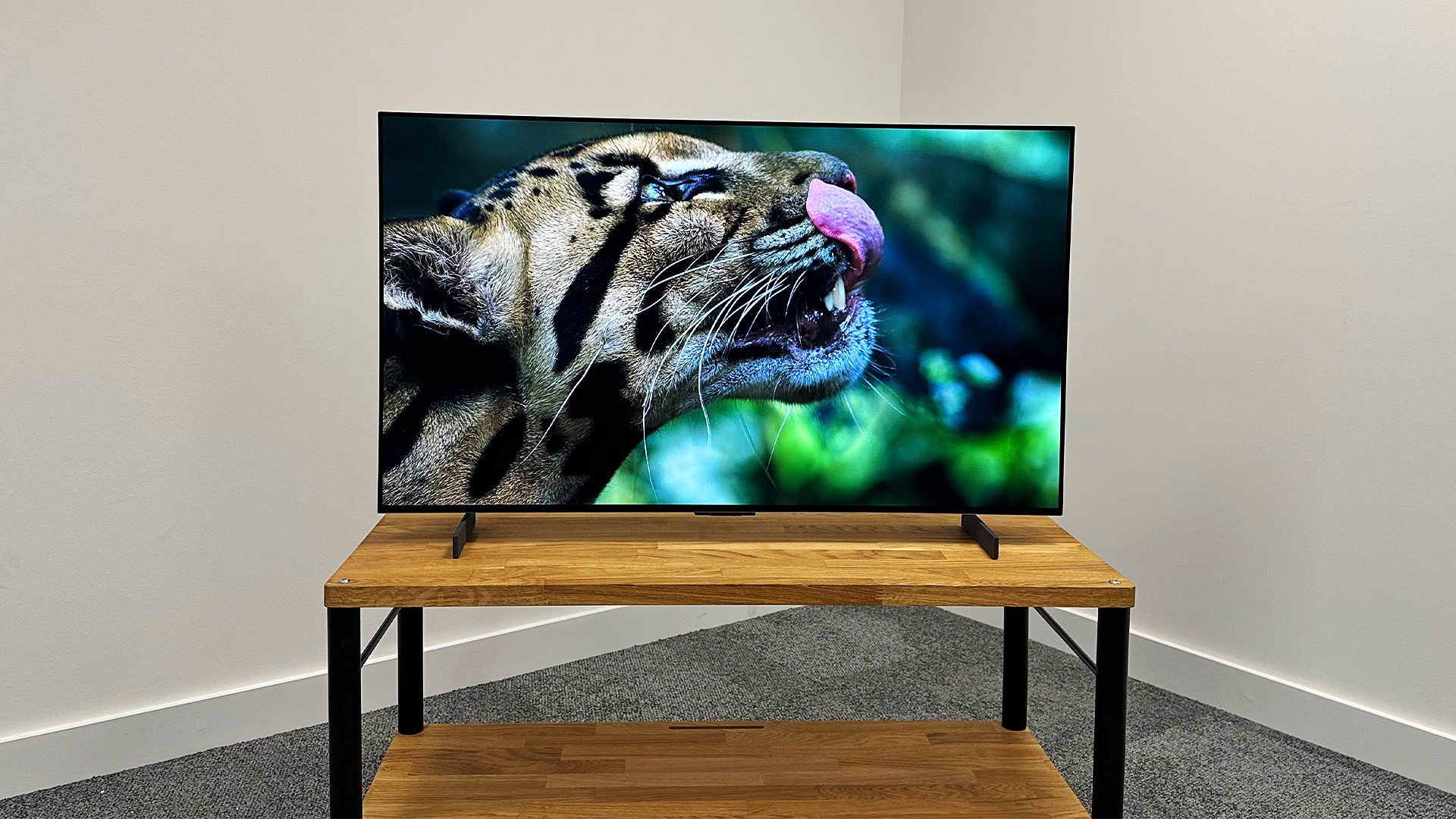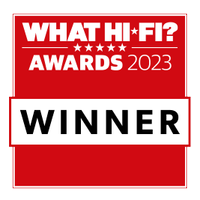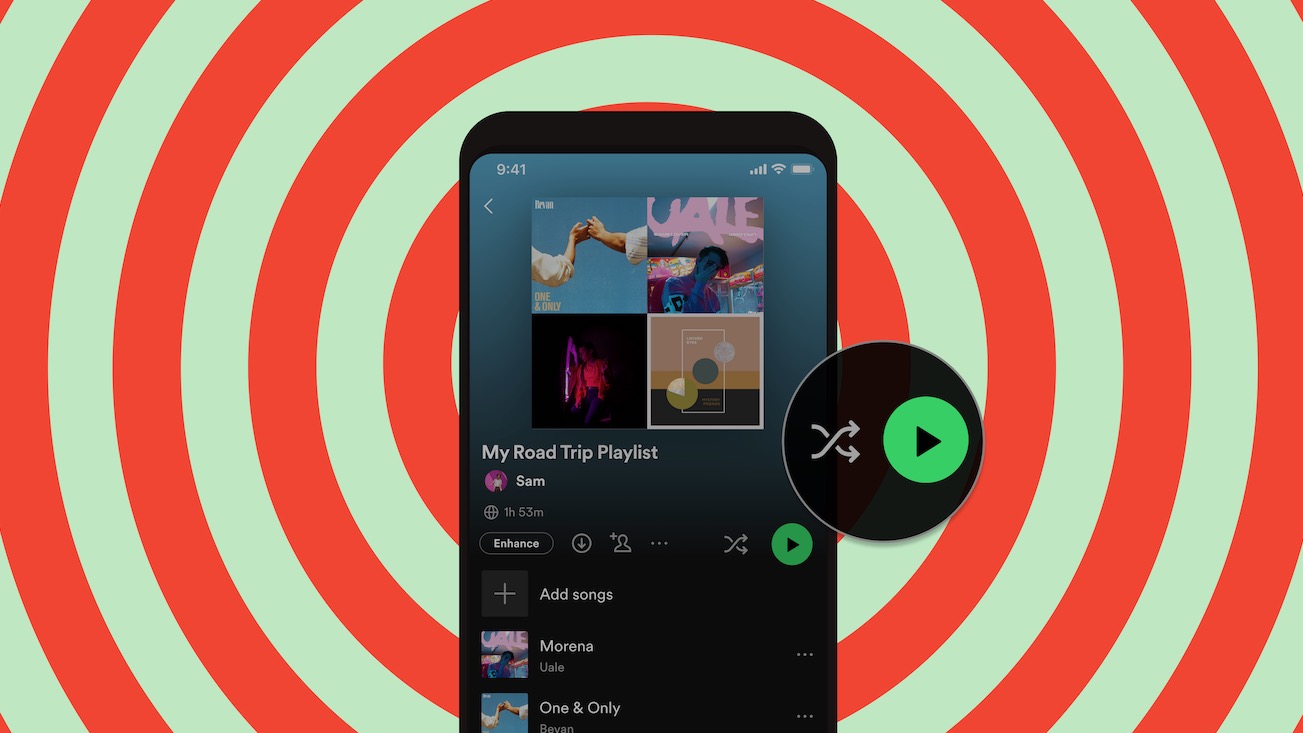What Hi-Fi? Verdict
A lack of significant upgrades means last year’s C2 is the small OLED to buy while it’s still available, but once it’s gone, the C3 will be the best TV at this size
Pros
- +
Sharp, solid and detailed without exaggeration
- +
Amazing contrast
- +
Exceptional gaming specs
Cons
- -
Minor upgrade on C2
- -
Weak sound
- -
Slight lack of shadow detail
Why you can trust What Hi-Fi?
While it probably wouldn’t be fair to say that LG has neglected its C series models this year, it does seem as if the attention lavished on the G3 – the world’s first MLA OLED TV – has left the C3 in the shadows somewhat, with little to no hardware upgrades.
It’s an approach that has already cost the 65-inch C3 quite dearly. Last year’s C2 was a multi Award-winner, but the lack of significant upgrades combined with a higher price and much-improved competition has pegged this year’s model back to a four-star rating.
You might assume that the same fate faces its 42-inch sibling, which we have before us today. However, LG’s 42-inch OLEDs have always been a somewhat different proposition to their larger siblings, and while the 42-inch C3 is certainly very similar to its predecessor, its price is practically the same as before and, even more crucially, it doesn’t have significant new rivals to worry about.
Price
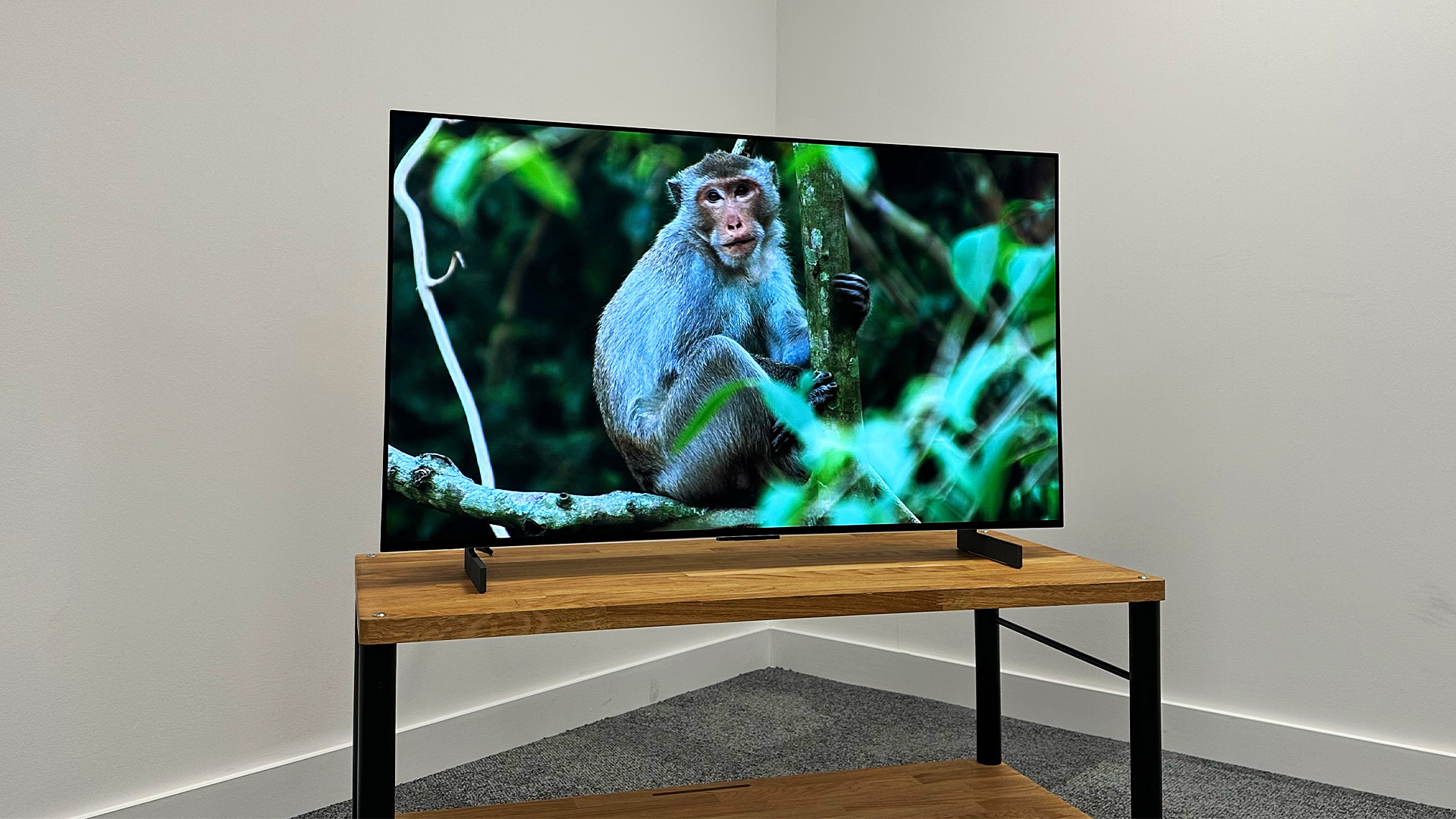
The OLED42C3 launched at a price of £1500 / $1400 / AU$2595. In the UK, that makes it slightly more expensive than the OLED42C2 was at launch, but in the US the price hasn’t changed and in Australia it’s actually gone down slightly. What’s more, the C3 has already seen some discounting.
Of course, last year’s C2 is now available for much less than its launch price, and so the sensible option may be to go for that while it’s still available. We’ll come back to that.
In terms of external rivals, there currently aren’t many. Sony isn’t launching any new ‘small’ OLEDs in 2023. Instead, it’s sticking with the XR-42A90K, which the LG C2 beat last year and which is, despite being a 2022 TV, currently more expensive than the brand-new C3. Philips has announced that it will launch a 42-inch OLED TV this year, but it’s not available yet, and while we expect Panasonic has one up its sleeve, such a set hasn’t even been announced yet.
Moving away from OLEDs, last year’s four-star, 43-inch Samsung QN90B is still available and will soon be replaced by a QN90C, but we haven’t yet had the opportunity to test this new model.
Design
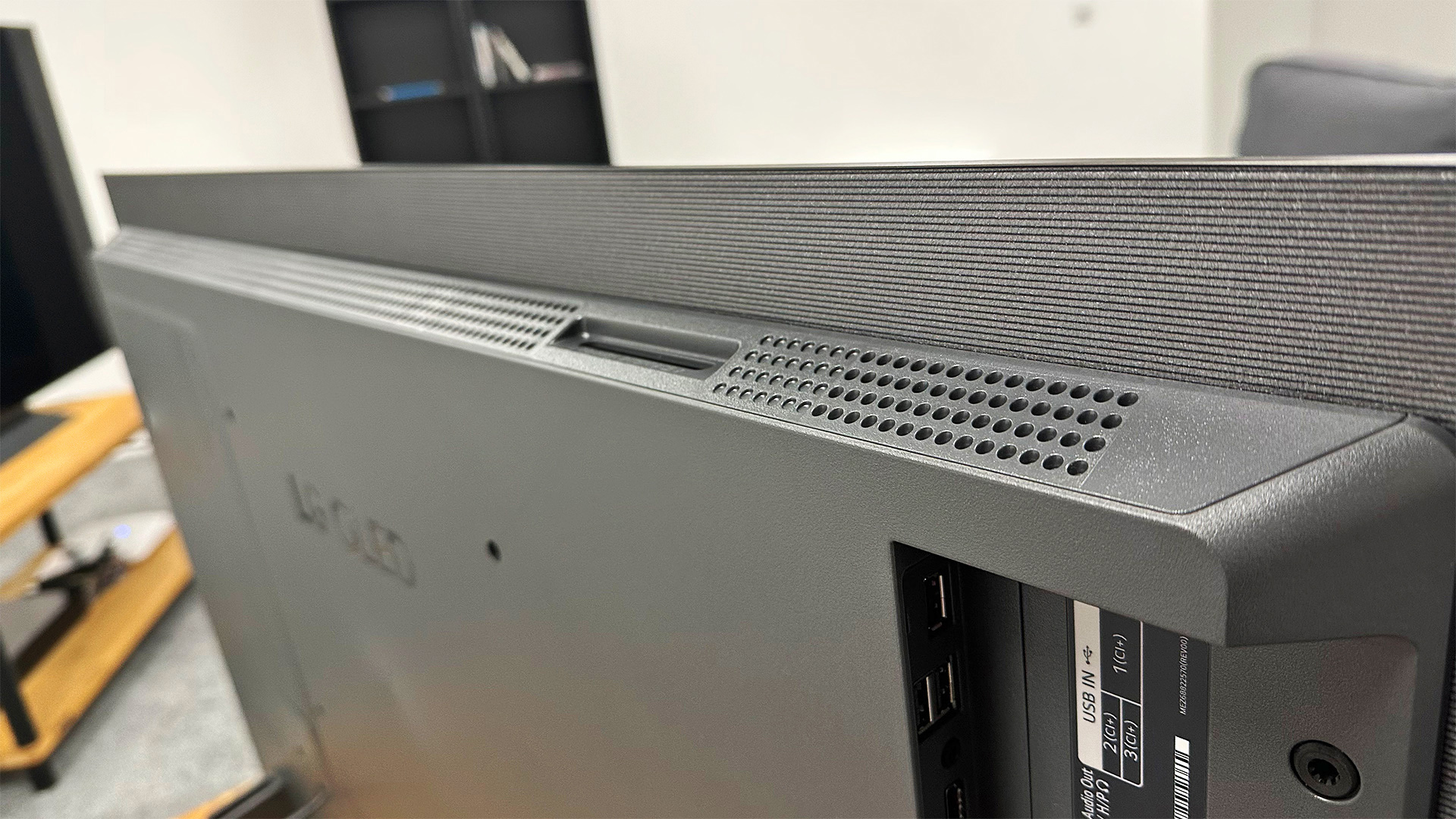
The 42-inch C3 looks identical to the C2 it replaces, and that’s a shame as there were certain things about the design that we would change, the most obvious of which is the feet. While we appreciate that having two feet rather than a pedestal stand can be better for desktop set-ups, the feet themselves are a bit plasticky and they don’t raise the screen high enough for anything but the slimmest soundbar to fit underneath. Feet that could be extended in order to create a bigger gap would be welcome – this is what Sony and Philips do.
It’s also a slight shame that the set’s OLED-ness isn’t more obvious in the design – the chassis is 4.1cm thick across almost its whole rear, with just the final few centimetres to the sides and top that are typically OLED-thin. This is likely unavoidable, of course, given that the set is as compact as it is and yet still has to pack in the same connections and processing hardware as its larger siblings.
Features
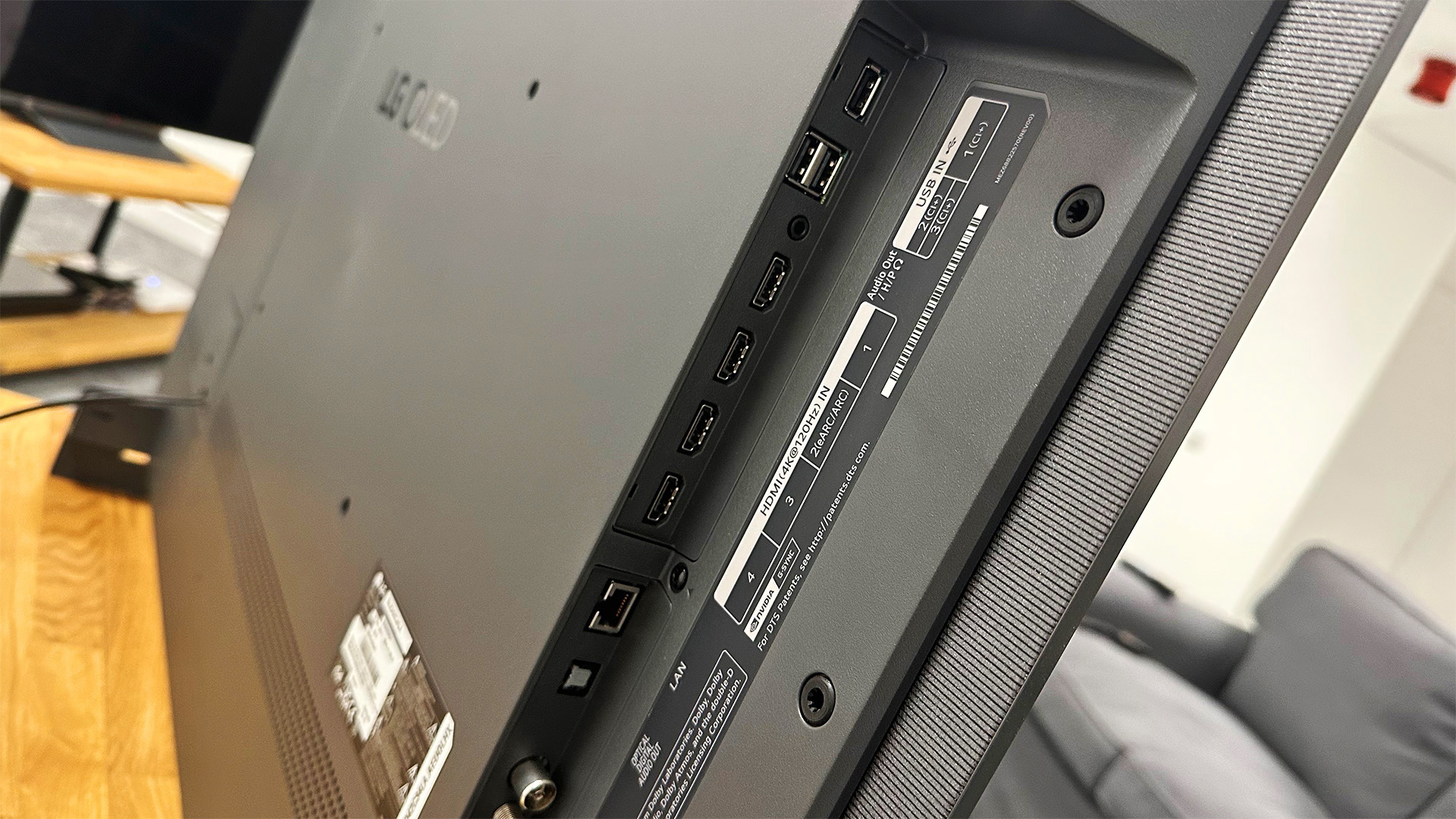
Said connections are among the C3’s greatest strengths, as they include four HDMI 2.1 sockets rated to the full bandwidth of 48Gbps. Each of these sockets can handle the 4K/120Hz, VRR and ALLM signals output by the PS5, Xbox Series X and gaming PCs. There are now quite a lot of TVs that can handle all of these gaming features, but most can only do so via two HDMI sockets, one of which is often taken up by eARC duties.
LG’s TVs are also currently unique in offering Dolby Vision gaming right up to 4K/120Hz, and there’s an HGiG mode that is particularly well implemented and makes it easy to get better HDR tone mapping in many modern games. All of these things were also true of the C2, but that doesn’t change the fact that you can’t buy a better-specified gaming TV than the LG C3.
If movies and TV shows are more your thing, the C3’s webOS 23 operating system is packed to the rafters with things to watch. Every streaming app you could reasonably expect to find on board is present, and all of the content that should be presented in 4K, Dolby Vision and/or Dolby Atmos is. Each app feels as though it’s been properly integrated, too, so that it works smoothly within the LG OS. That might sound like a small thing, but many TVs (particularly those on the Android / Google TV platform) have annoying foibles such as returning you to the home menu whenever you press the settings button on the remote control. There are no such issues here (or with Samsung TVs, to be fair), and every button press delivers the expected result.
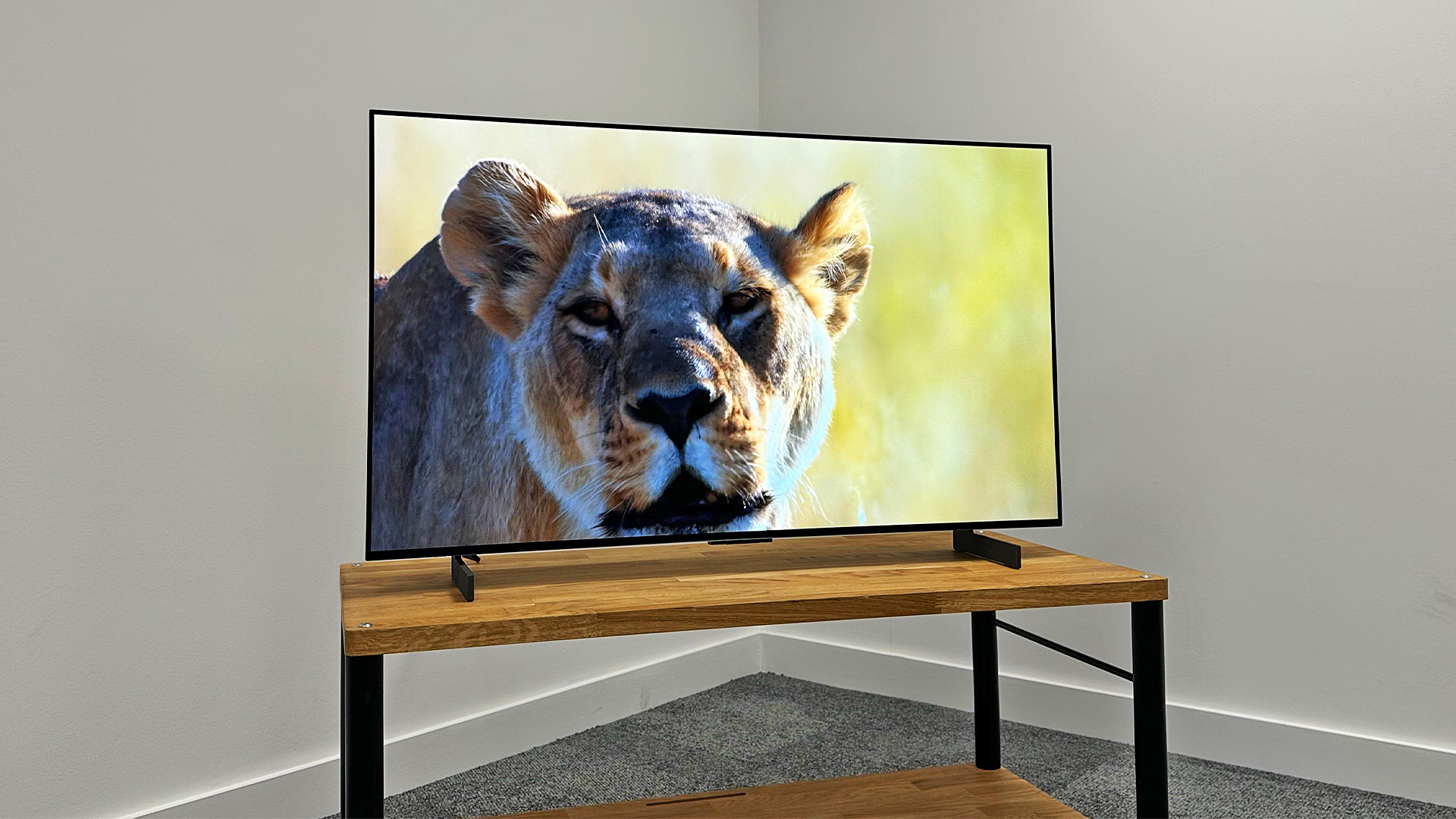
Screen size 42 inches (also available in 48in, 55in, 65in, 77in, 83in)
Type OLED
Backlight N/A
Resolution 4K
HDR formats HLG, HDR10, Dolby Vision
Operating system webOS 23
HDMI inputs x4 (4 x 48Gbps HDMI 2.1)
Gaming features 4K/120, VRR, ALLM, Dolby Vision game mode, HGiG
ARC/eARC eARC
Optical output? Yes
Dimensions (hwd, without stand) 54 x 93 x 4.1cm
This year’s version of webOS initially looks very similar to last year’s, but LG has made some useful quality-of-life improvements. The most obvious of these is that the seemingly endless pages of apps, features and content have been reduced to just two in order to reduce scrolling and loading times. Sure enough, the streamlined system is snappier and more responsive.
In order to achieve this reduction in home page clutter, LG has introduced a folder system that sees related apps and features grouped into folders called ‘cards’. It makes everything very intuitive (looking for a music app? Open the music folder) but we wonder how many people will never open any of the cards and therefore whether the row that contains them should be the first one on the home page, as it is now. To us, it would make more sense to have the ‘Recommended’ row of content first, then the row of individual apps, and finally the cards, but we can’t lay claim to any qualifications in UI design. Of course, if a very large portion of the home screen wasn’t dedicated to advertising, there would be much more space for the content and features that owners actually care about. This isn’t a new phenomenon in TVs, but it is a bit of a depressing one.
In terms of panel hardware, the new C3 is the same as last year’s C2, which means it is what LG terms an ‘OLED Evo’ TV, but one that goes less bright than its siblings that are 55 inches and larger. This is simply down to how tightly packed the OLEDs are in these smaller displays and is a commonality across manufacturers.
The C3 does have a new processor, though – the Alpha 9 Gen 6. The list of upgrades over the Alpha 9 Gen 5 chip it replaces includes AI Upscaling Pro, which is designed to reduce noise in upscaled sub-4K content without sacrificing intentional film grain; OLED Dynamic Tone Mapping Pro, which independently optimises the HDR delivery of 20,000 individual zones in each image (up from 5000 zones); Object Enhancer, which sharpens foreground elements for extra image depth and clarity; and HDR Expression Enhancer, which applies specific tone mapping to those foreground elements, again for extra three-dimensionality.
Picture
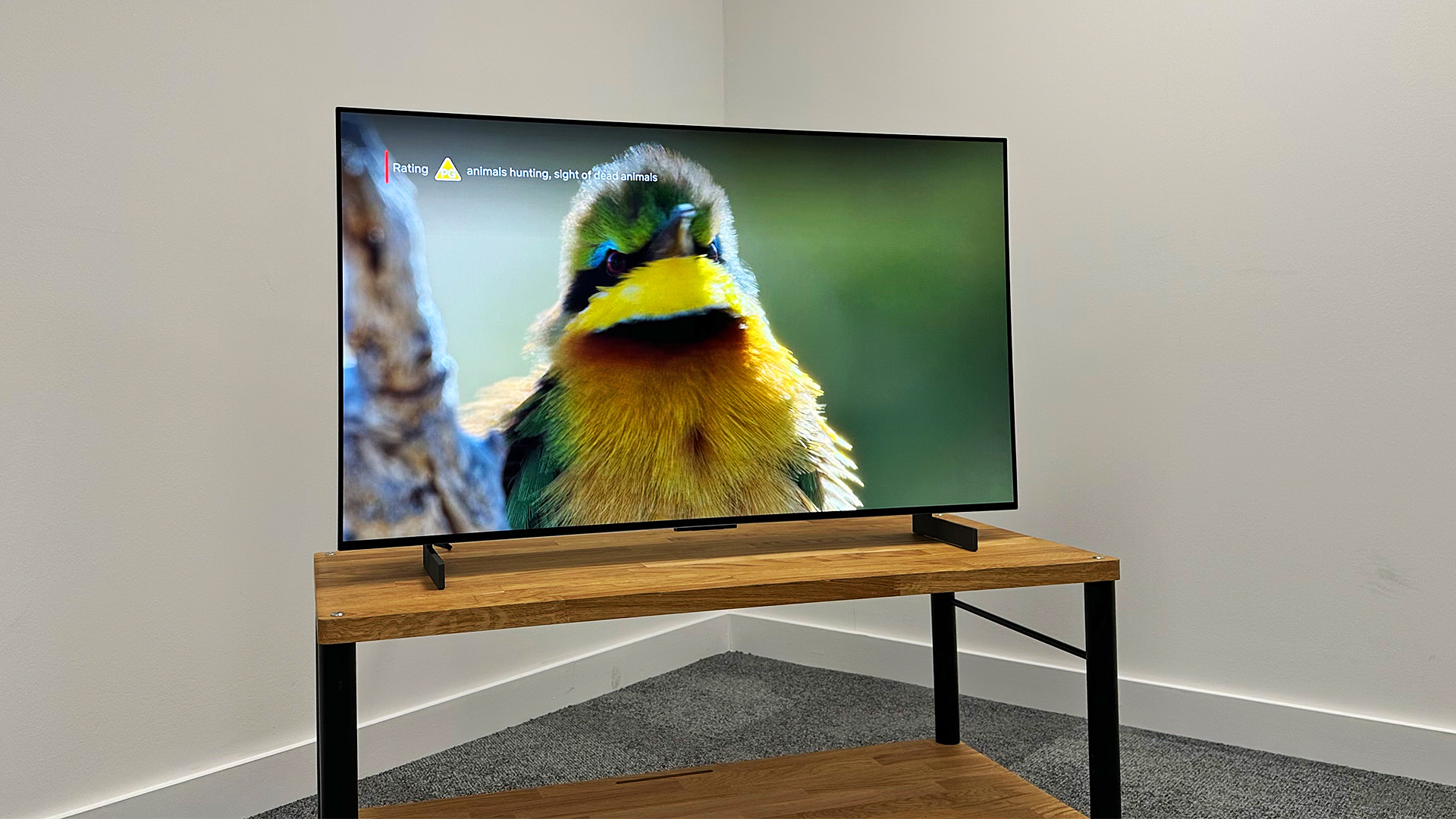
While we wouldn’t recommend that someone who has room for a 65-inch TV instead goes for a 42-inch model, there is an advantage to going small – pixel density. Because the pixels are more tightly packed, sharpness is increased, and the crispness of the OLED42C3’s delivery actually makes its 65-inch sibling look a bit soft.
As expected, the dinky C3 doesn’t go as bright as its big brother, but with real-world content, the difference isn’t as large as you might expect. Yes, highlights are a little less punchy, but the 42-inch C3 is fabulously dynamic, possibly because the effectiveness of pixel-level contrast control is even more pronounced at this size.
While the difference in peak brightness highlights is less significant than expected, there is a difference in mid-tones, which are lighter than from the larger C3, and blacks, which contain marginally more detail. That makes the small C3 slightly less insightful than the bigger model, but its bolder delivery is really pleasing in its own way, proving more solid and more impactful.
And just because the small C3 is slightly less insightful than the 65-inch version doesn’t mean it’s some sort of broad-strokes brute. On the contrary, it's subtle in terms of shading and natural in terms of colours.
What’s more, it’s much easier to get the C3 looking its best than it is most other TVs. We opt for the Dolby Vision Cinema Home preset when watching Dolby Vision content, and Filmmaker Mode for practically everything else. It’s sensible to tweak beyond that to taste (check out our C3 setup tips), but you’ll already be most of the way to an excellent performance if you select those presets.
One thing you will want to adjust is the motion processing, given how personal this sort of thing can be. Our recommendation is to start with the Cinematic Movement option, which is designed to reduce the judder you get from 24p content without applying proper motion processing, but some people might prefer smoother motion and purists may prefer no processing at all. It is fair to say, though, that while almost everyone will be able to find a TruMotion setting that satisfies, Sony’s top TVs combine smoothing and naturalism in a best-of-both-worlds way that rivals such as the C3 still can’t quite match.
Moving away from 4K HDR content, which we unfortunately can’t entirely live on even in 2023, the 42-inch C3 is still brilliant, upscaling content with a very well-judged combination of sharpness and cleanliness that will fool some people into thinking they’re watching native 4K.
Sound
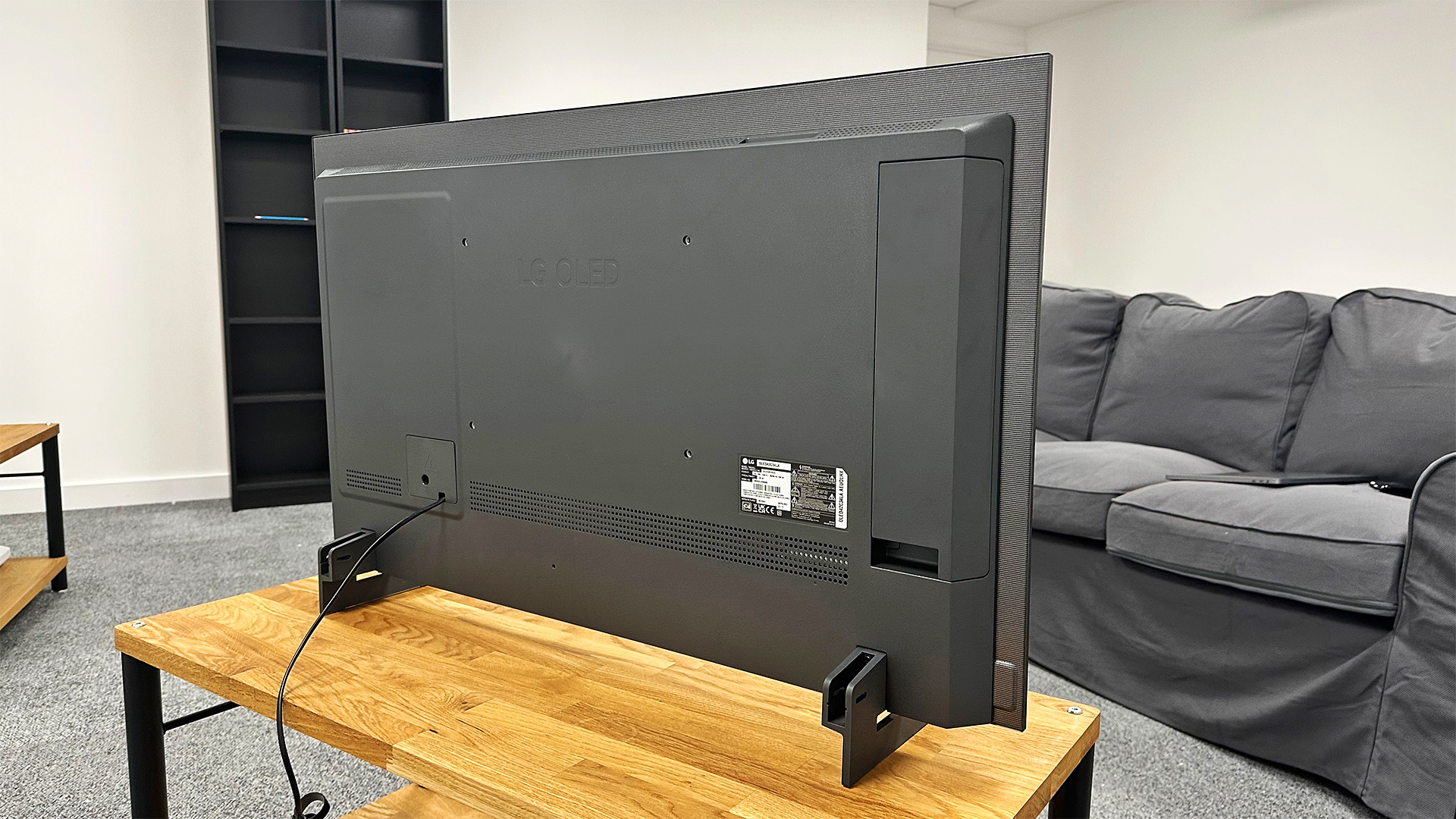
LG’s 2023 TVs have so far disappointed on the sound front, and the omens aren’t good for the 42-inch C3 when you consider that small TVs tend to sound weaker than their larger counterparts.
Sure enough, the small C3 is much less bassy than the 65-inch version, and it goes significantly less loud, too. On the plus side, that does make it less readily provoked into bassy distortion, though it is there if you push it to very high volumes. Still, you’re simply less likely to encounter the issue (a real problem for the 65-inch C3) even in the Dolby Atmos mode. That makes the Dolby Atmos mode more useable, which is good because it creates a nicely spacious sound, particularly for a TV this size, while also projecting voices effectively.
Unfortunately, the 42-inch C3 still suffers from the rather dull delivery we encountered with the 65-inch G3 and C3. The deep drums at the start of chapter two of Blade Runner 2049 (our regular audio stress test) are delivered very limply and there’s very little in the way of dynamics as the scene progresses.
As with those larger TVs, the small C3 sounds perfectly fine for everyday TV, but it doesn’t have the punch, weight or dynamic range to satisfyingly deliver a movie soundtrack. A soundbar is a must.
Verdict
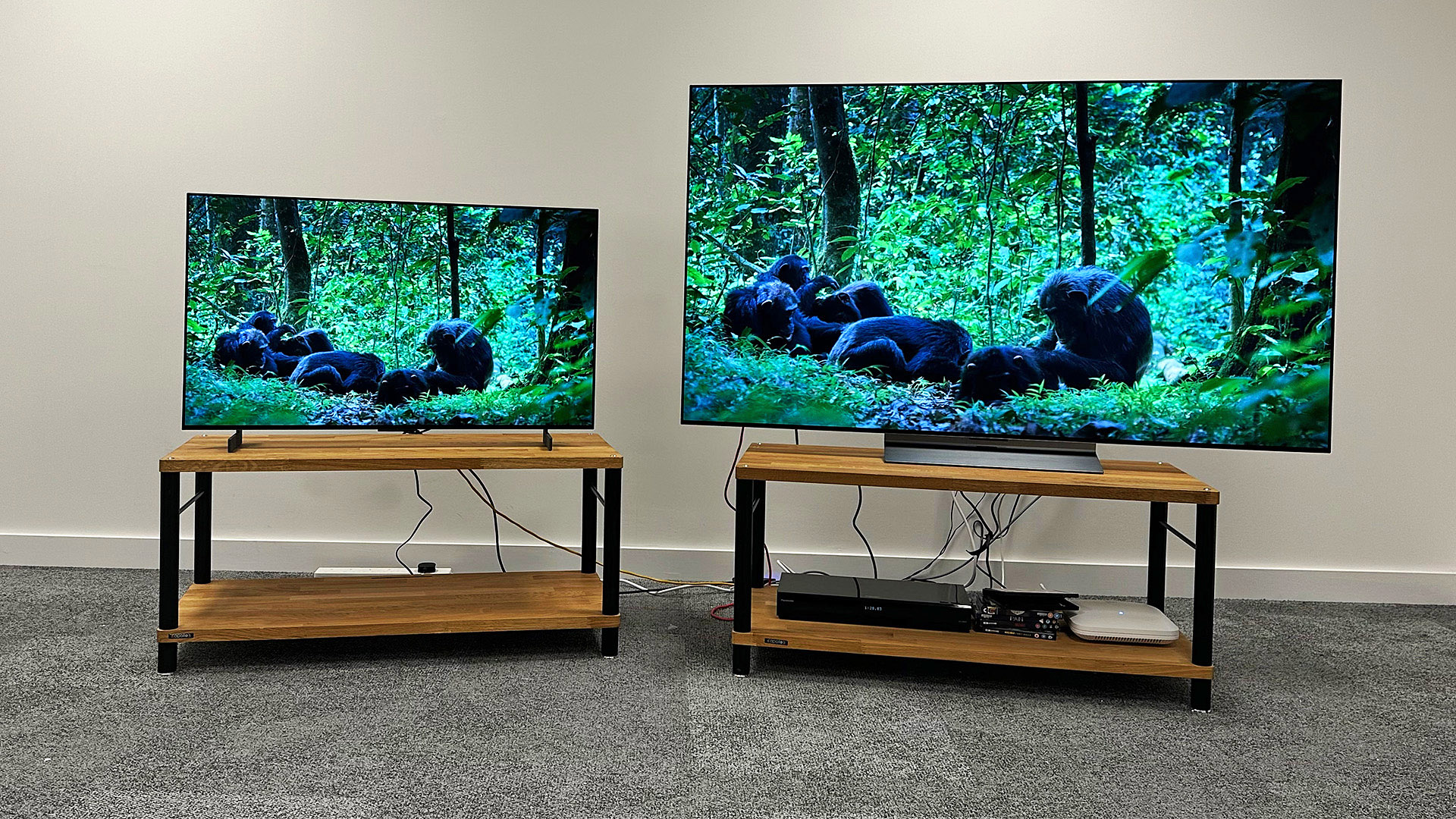
Like the 65-inch version, the 42-inch C3 is very similar to the TV it replaces. That is, of course, disappointing, and we’d love to see some extra development in the small OLED TV segment which, as we’ve mentioned, is somewhat restricted in terms of brightness compared with larger models.
But, unlike the large C3, this small model isn’t priced much higher than its predecessor was at launch and it doesn’t have a barrage of new and enhanced rivals to face down. In that landscape, being just marginally better than before is good enough for the OLED42C3 to be the best 42-inch TV we’ve tested – but you should still buy a discounted C2 while it’s still available.
SCORES
- Picture 5
- Sound 3
- Features 5
MORE:
Read our review of the Sony XR-42A90K
Also consider the Samsung QE43QN90B
Read our LG OLED65C3 review
Tom Parsons has been writing about TV, AV and hi-fi products (not to mention plenty of other 'gadgets' and even cars) for over 15 years. He began his career as What Hi-Fi?'s Staff Writer and is now the TV and AV Editor. In between, he worked as Reviews Editor and then Deputy Editor at Stuff, and over the years has had his work featured in publications such as T3, The Telegraph and Louder. He's also appeared on BBC News, BBC World Service, BBC Radio 4 and Sky Swipe. In his spare time Tom is a runner and gamer.
- Ketan BharadiaTechnical Editor
-
Friesiansam Reply
This rather suggests you think people who only have the space for a smaller TV, should not be able to expect the same quality as those who can accommodate a larger one. Why should that have to be the case?What Hi-Fi? said:Not a major step forward, but at this size it doesn’t need to be
